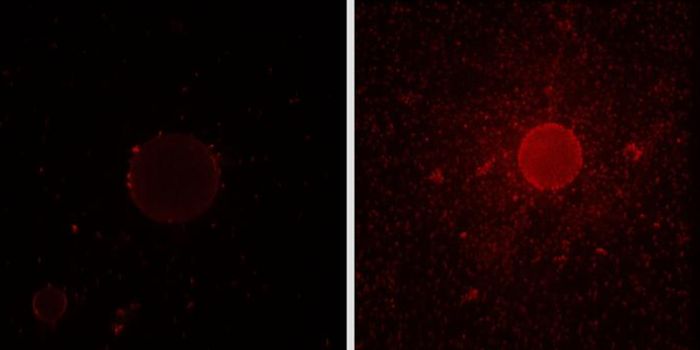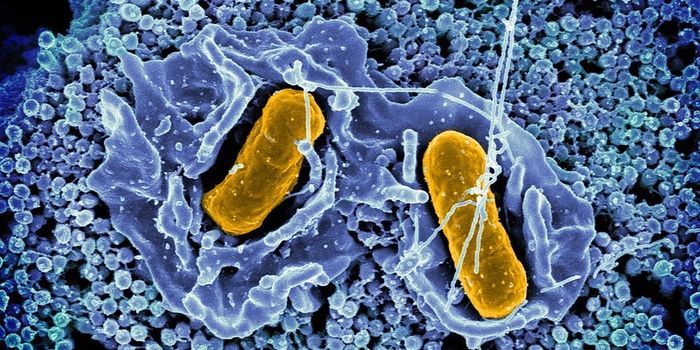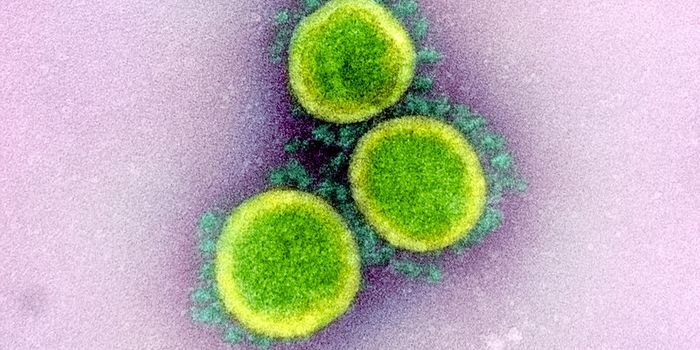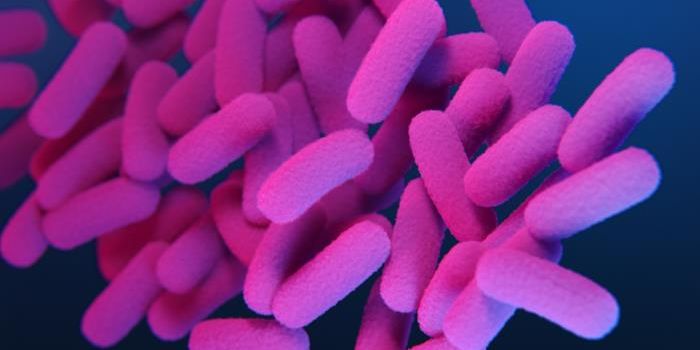Common Drugs Impact Gut Bacteria
The bacteria that live in our gastrointestinal tract are intimately connected to our health, and researchers are working to learn more about that relationship. Now scientists have discovered that four common drugs inhibit bacterial growth in the gut. These drugs have side effects that are similar to those caused by antibiotics, and they may also be promoting antibiotic-resistance. After screening 1000 medications for their impact on 40 common gut bacteria, they found that 250 non-antibiotic drugs affected the growth of at least one bacterial species. The work, by EMBL scientists, has been reported in Nature, and is summarized in the video.
While recent work indicated that common drugs that are not antibiotics impact the composition of the gut microbiome, this work is the first to assess the interaction between drugs and individual gut bacterial strains. Medications from all classes had a negative effect on the growth of various microbes.
"The number of unrelated drugs that hit gut microbes as collateral damage was surprising," said Peer Bork. "Especially since we show that the actual number is likely to be even higher. This shift in the composition of our gut bacteria contributes to drug side-effects, but might also be part of the drugs' beneficial action."
"This is just the beginning. We don't know yet how most of these drugs target microbes, how these effects manifest in the human host, and what the clinical outcomes are. We need to carefully study these relationships, as this knowledge could dramatically improve our understanding and the efficacy of existing drugs,” added Kiran Patil.
This research also indicated that drugs that aren’t antibiotics might promote antibiotic resistance. The mechanisms used by microbes to gain resistance to antibiotics overlap with those that provide resistance to other drugs.
"This is scary, considering that we take many non-antibiotic drugs in our life, often for long periods,” said Nassos Typas. “Still, not all drugs will impact gut bacteria and not all resistance will be common. In some cases, resistance to specific non-antibiotics will trigger sensitivity to specific antibiotics, opening paths for designing optimal drug combinations."
"We are excited to move on and explore drug-microbe interactions in complex gut microbial communities, as this will help us understand how individuals sometimes respond differently to the same medication," said Georg Zeller.
We all carry a unique gut microbiome made up of varied proportions of different kinds of bacteria. That microbiome can change over time, and can become personalized, in which the bacterial strains themselves evolve and become individualized. All of that can affect the response our body has to drugs, positive and negative. Much more work remains in this field if we are to develop truly personalized medicine.
Sources: AAAS/Eurekalert! Via European Molecular Biology Laboratory, Nature









